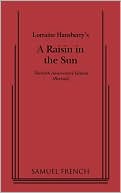A Raisin in the Sun
Search in google:
When it was first produced in 1959, A Raisin in the Sun was awarded the New York Drama Critics Circle Award for that season and hailed as a watershed in American drama. A pioneering work by an African-American playwright, the play was a radically new representation of black life.Sacred FireA Raisin in the Sun, written by the then twenty-nine-year-old Hansberry, was the "movin on up" morality play of the 1960s. Martin had mesmerized millions, and integration was seen as the stairway to heaven. Raisin had something for everyone, and for this reason it was the recipient of the prestigious New York Drama Critics Circle Award. The place: a tenement flat in Southside, Chicago. The time: post World War II. Lena Younger, the strong-willed matriarch, is the glue that holds together the Younger family. Walter Lee is her married, thirty-something son who, along with his wife and sister, lives in his mother s apartment. He is short on meeting responsibilities but long on dreams. Beneatha (that s right, Beneatha) is Waiter s sister an upwardly mobile college student who plans to attend medical school. Mama Lena is due a check from her late husband s insurance, and Waiter Lee is ready to invest it in a liquor store. The money represents his opportunity to assert his manhood. It will bring the jump start he needs to set his life right. Beneatha tells him that it s "mama s money to do with as she pleases," and that she doesn t really expect any for her schooling. However, Mama wants to use her new money for a new beginning in a new house, in a new neighborhood (white). Walter cries, and Mama relents. She refrains from paying cash for the house and places a deposit instead, giving Waiter the difference to share equally between his investment and Beneatha s college fund. Walter squanders the entire amount. Meanwhile, Mama receives a call from the neighborhood "welcome committee" hoping to dissuade the family from moving in. While roundly criticized for being politically accommodating to whites, Raisin accurately reflected the aspirations of a newly nascent black middle class.







